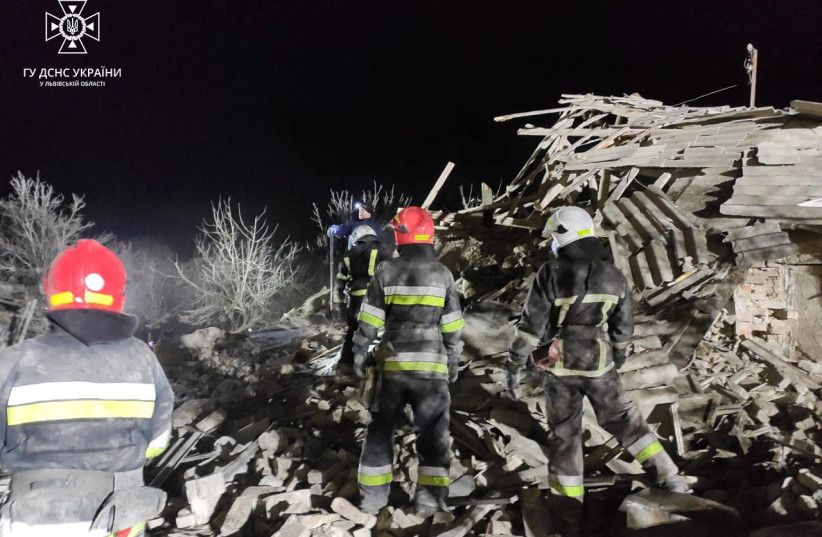Russia unleashed a new wave of air strikes across Ukraine on Thursday, killing at least six people and knocking out power, including to the Russian-controlled Zaporizhzhia nuclear power station.
The Russian-held nuclear power plant in Ukraine has lost all external power supply and is relying on diesel generators, a last line of defense to prevent meltdown from overheating reactor fuel, the International Atomic Energy Agency (IAEA), the UN atomic watchdog confirmed.
"This morning at around 5 a.m. local time Zaporizhzhia Nuclear Power Plant lost all off-site power when its last remaining 750-kilovolt line was disconnected, its only remaining back up 330 kilovolt line having been damaged a few days ago and under repair," the IAEA said in a statement on Thursday.
Ukraine's military said Russia fired 81 missiles and eight drones in attacks mainly targeting energy infrastructure, and that the weapons used included six hypersonic Kinzhal missiles which Ukraine cannot intercept.
Where did the attacks hit?
The attacks were mainly on energy facilities and hit more than half a dozen regions, striking the capital Kyiv, the Black Sea port of Odesa and the second-largest city Kharkiv.

Ukraine's military said air defenses knocked out at least 34 missiles and four Shahed suicide drones, but regional officials said five people were killed in the western region of Lviv and one in southeastern Dnipropetrovsk in southeastern Ukraine.
"This was a major attack and for the first time with so many different types of missiles...The enemy launched six Kinzhals," air force spokesperson Yuriy Ihnat said. "It was like never before."
Russia, which launched a full-scale invasion of Ukraine just over a year ago, stepped up air strikes last October, and has frequently knocked out power to millions of people since then.
Kyiv mayor Vitali Klitschko said at least two people were wounded in an attack on the capital that knocked out heating to 40% of the city on Thursday.
Reuters correspondents in Kyiv heard a series of explosions around 7:00 a.m. (0500 GMT).
Ukraine's state nuclear power agency, Energoatom, said the strikes also cut electricity to the Zaporizhizhia nuclear power plant, Europe's largest, forcing it to switch to diesel generators which have enough fuel to power it for 10 days.
National grid operator Ukrenergo said power had been limited in all regions during the strikes as a precaution, and that at least three would experience longer cuts as a result of the attacks.
Russia-installed officials in the occupied part of the Zaporizhzhia region said the halt in electricity supplies to the nuclear plant was "a provocation."
But Andriy Yermak, the chief of the Ukrainian presidential staff, wrote on the Telegram messaging app: "The terrorists are doing everything they can to leave us without power... They are continuing their terror against peaceful people."
Kharkiv region Governor Oleh Synehubov said his city in northeastern Ukraine had been hit by about 15 S-300 ballistic missiles, which Ukraine is also unable to intercept.
"The enemy made about 15 strikes on the city and region," he said on Telegram. "Infrastructure was again among the targets."
